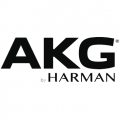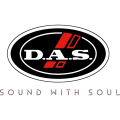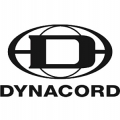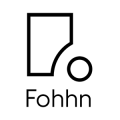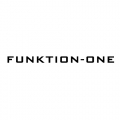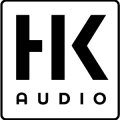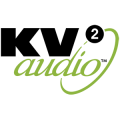Soundcraft Realtime Rack
The result of a unique collaboration between live sound mixing experts Soundcraft and renowned plug-in manufacturer, Universal Audio, the Soundcraft Realtime Rack brings industry-standard UAD studio plug-ins to the Soundcraft platform. The Realtime Rack hardware and software delivers tight integration of Soundcraft Vi consoles and UAD Powered Plug-Ins, with (48 kHz) sub-2 millisecond latency and full snapshot store and recall with Soundcraft’s CUE/Snapshot system. Realtime Rack’s robust SHARC-based processors run audio over standard Optical MADI connections and dual-redundant internal power supplies ensure that audio signals keep running, even in the event of a power supply failure. Soundcraft Realtime Rack brings the stability of DSP and the sound quality that Soundcraft and Universal Audio are known for in a scalable, low-latency processing environment.
UAD Powered Plug-Ins. What Live Sound has been waiting for
Combining the intuitive Vistonics operator interface with pristine sound quality and powerful mixing features, the Soundcraft Vi Series is already established as the first-choice live sound mixing console for touring and installed applications worldwide.
Now the new Soundcraft Realtime Rack provides access to Universal Audio's acclaimed analogue audio processing emulations and award-winning UAD plug-ins. Realtime Rack software gives Vi console operators all the control they need to insert UAD plug-ins on individual channels, auxiliary channels, and master busses - just as easily as real hardware. A comprehensive snapshot system allows total recall of all plug-ins and their settings, while tight network integration with the Vi Series ensures that all settings of the application are stored inside the console.
Two versions are available: The Realtime Rack Ultimate Live with 74 plug-ins available, and the Realtime Rack Core Live with 14 plug-ins. Additional UAD plug-ins can be purchased any time from UA's Online store. The 8.6.3 software update for Realtime Rack makes available a further 46 plug-ins which can be added to either the Ultimate or Core Live units.
The UAD Powered Plug-Ins platform offers the world's most authentic analogue hardware emulations and award-winning audio plug-ins. Powered by Universal Audio's DSP Accelerator hardware, UAD Powered Plug-Ins deliver rich, analogue sound quality that would be difficult or impossible to achieve with native recording systems.
From rare compressors and equalizers, to vintage reverb processors and tape machines, UAD Powered Plug-Ins inject three-dimensional 'out-of-the-box' analogue sound to your mixes.
The Realtime Rack Ultimate Live (74 plug-ins available):including -
- 1176 Classic Limiter Collection
- 1176LN Legacy Limiter
- 1176SE Legacy Limiter
- API 500 Series EQ Collection
- API Vision Channel Strip
- dbx 160 Compressor
- CS-1 Channel Strip
- Cambridge Equalizer
- Cooper Time Cube Delay/Modulation
- DreamVerb Reverb
- Empirical Labs Fatso JR/SR
- EMT 140 Plate Reverb
- EMT 250 Digital Reverb
- EP-34 Tape Echo
- Fairchild Tube Limiter Collection
- Harrison 32C Equalizer
- Helios 69 Equalizer
- Lexicon 224 Reverb
- Little Labs IBP
- Little Labs VOG
- Manley Massive Passive
- Moog Filter
- MXR Flanger Doubler
- Neve 1073
- Neve 1081
- Neve 31102
- Neve 33609
- Neve 88RS
- Oceanway Studios
- Precision Buss Compressor
- Precision De-Esser
- Precision Enhancer Hz
- Precision Enhancer kHz
- Precision Equalizer
- Precision K-Stereo
- Precision Limiter
- Precision Maximizer
- Pultec Passive EQ Collection
- Pultec EQP-1A Legacy Equalizer
- Pultec Pro Legacy Equalizer
- RealVerb Pro Reverb
- Roland CE-1
- Roland Dimension D
- Roland RE-201
- SPL Transient Designer
- SSL E Channel Strip
- SSL G Bus Compressor
- Studer A800 Tape Machine
- Teletronix LA-2A Limiter Collection
- Teletronix LA-2A Legacy Limiter
- Teletronix LA-3A Limiter
- Trident A-Range
Realtime Rack Core Live (14 plug-ins included):
including -
- 1176LN Legacy Limiter
- 1176SE Legacy Limiter
- dbx 160 Compressor
- CS-1 Channel Strip
- Lexicon 224 Reverb
- Pultec EQP-1A Legacy Equalizer
- Pultec Pro Legacy Equalizer
- RealVerb Pro Reverb
- Studer A800 Tape Machine
- Teletronix LA-2A Legacy Limiter
Professional used lighting equipment.| Professional second hand lighting equipment.| Professional pre owned lighting equipment.
Professional used audio equipment.| Professional second hand audio equipment.| Professional pre owned audio equipment.
Second hand audio gear. | Second hand lighting.
Pro audio equipment, second hand amplifiers, DJ, second hand sound systems, second hand Microphones, second hand Media Players.
Outdoor & Indoor LED screens for sale, LED mobile truck.
Light trussing, Gebrauchte Veranstaltungstechnik, used stage equipment Stage & Theatre lighting products.
Used Soundcraft
Soundcraft is a British designer and importer (formerly a manufacturer) of mixing consoles and other professional audio equipment. It is a subsidiary of Harman International Industries, which is owned by South Korean company Samsung Electronics.
It was founded by sound engineer Phil Dudderidge and electronics designer Graham Blyth in 1973.
Soundcraft first made its mark by manufacturing the Series 1, the first mixing console built into a flight-case. It was available with 12 or 16 input channels and 4 main stereo outputs, plus a post-fader ‘echo’ send and pre-fader foldback. Each channel had four-band fixed-frequency EQ. The Series 1 also included a multi-pin connector that integrated with a multi-channel microphone snake to route signals from and to the stage from a mix position in the audience.
The Series 1S was introduced in 1975 as an upgraded Series 1. The Series 1S introduced the classic Soundcraft four-band EQ with two sweepable mid-range sections. In addition to The Series 1S added a second foldback send and was available in a 20 channel version.
In 1975, Soundcraft introduced the Series 2 console as a live and recording console. The Series 2 began to build Soundcraft's reputation for quality desks with the classic British sound. The Series 2 launched as a four-bus console, and was later available in an eight-bus version. It was initially offered in 12 and 16 channel versions, and a 24 channel version was later added.
The design used a semi-modular approach with individual channels in separate modules. The master section was made up of echo return, group output, cue master and monitoring modules. The input channels were available in fixed-frequency EQ standard channel and swept EQ versions. The swept EQ version also allowed switching between microphone input and line input, which was typically attached to a multi-track recorder output. All channels provided stereo pan as well as four cue send buses that could be configured as pre- or post-fader and allowed individual monitoring via a pre-fade listen (PFL) function. Each channel could be routed directly to the left–right mix bus or to odd/even pairs of sub-mix buses.
Professional used lighting equipment.| Professional second hand lighting equipment.| Professional pre owned lighting equipment.
Professional used audio equipment.| Professional second hand audio equipment.| Professional pre owned audio equipment.
Second hand audio gear. | Second hand lighting.
Pro audio equipment, second hand amplifiers, DJ, second hand sound systems, second hand Microphones, second hand Media Players.
Outdoor & Indoor LED screens for sale, LED mobile truck.
Light trussing, Gebrauchte Veranstaltungstechnik, used stage equipment Stage & Theatre lighting products.
Active: Powered. An active crossover is electrically powered and divides the line-level signal prior to amplification. An active speaker includes an active crossover and built-in amplifier.
Actuality: Audio from an announcer speaking.
Amplifier: A component that increases the gain or level of an audio signal.
Balanced Input: A connection with three conductors: two identical signal conductors that are 180 degrees out of phase with each other, and one ground. This type of connection is very resistant to line noise.
Bandpass: A two-part filter that cuts both higher and lower frequencies around a center band. A bandpass enclosure cuts high frequencies by acoustic cancellation and low frequencies by natural physical limitations on bass response.
Bandwidth: In audio, the range of frequencies a device operates within. In video, the range of frequencies passed from the input to the output. Bandwidth can also refer to the transmission capacity of an electronic communications device or system the speed of data transfer,is very important when planning a meeting for the attendees to stay connected.
Bass: Low frequencies; those below approximately 200 Hz.
Bi-Wiring: A method of connecting an amplifier or receiver to a speaker in which separate wires are run between the amp and the woofer and the amp and the tweeter.
Boost: To increase, make louder or brighter; opposite of attenuate.
Bridging: Combining two channels of an amplifier to make one channel that more powerful. One channel amplifies the positive portion of an audio signal and the other channel amplifies the negative portion, which are then combined at the output.
CD: Compact Disc. Ubiquitous digital audio format. Uses 16-bit/44.1-kHz sampling rate PCM digital signal to encode roughly 74 or 80 minutes of two- channel, full-range audio onto a 5-inch disc.
CD-R: Recordable Compact Disc.
CD-RW: Rewritable Compact Disc.
Channel: In components and systems, a channel is a separate signal path. A four-channel amplifier has at least four separate inputs and four separate outputs.
Coloration: Any change in the character of sound (such as an overemphasis on certain tones) that reduces naturalness.
Crossover: A component that divides an audio signal into two or more ranges by frequency, sending, for example, low frequencies to one output and high frequencies to another. An active crossover is powered and divides the line-level audio signal prior to amplification. A passive crossover uses no external power supply and may be used either at line level or, more commonly, at speaker level to divide the signal after amplification and send the low frequencies to the woofer and the high frequencies to the tweeter.
Crossover Frequency: The frequency at which an audio signal is divided. 80 Hz is a typical subwoofer crossover point and is the recommended crossover point in theatrical and home THX systems. Frequencies below 80 Hz are sent to the subwoofer signals above 80 Hz are sent to the main speakers.
Cut: To reduce, lower; opposite of boost.
Decibel (dB): A logarithmic measurement unit that describes a sound`s relative loudness, though it can also be used to describe the relative difference between two power levels. A decibel is one tenth of a Bel. In sound, decibels generally measure a scale from 0 (the threshold of hearing) to 120-140 dB (the threshold of pain). A 3dB difference equates to a doubling of power. A 10dB difference is required to double the subjective volume. A 1dB difference over a broad frequency range is noticeable to most people, while a 0.2dB difference can affect the subjective impression of a sound.
Delay: The time difference between a sonic event and its perception at the listening position (sound traveling through space is delayed according to the distance it travels). People perceive spaciousness by the delay between the arrival of direct and reflected sound (larger spaces cause longer delays.
Diaphragm: The part of a dynamic loudspeaker attached to the voice coil that produces sound. It usually has the shape of a cone or dome.
Diffusion: In audio, the scattering of sound waves, reducing the sense of localization. In video, the scattering of light waves, reducing hot spotting, as in a diffusion screen.
Digital Audio Server: Essentially a hard drive, a digital audio server stores compressed audio files (like MP3 or WMA). Most include the processing to make the files, and all have the ability to play them back.
Direct-Stream Digital: A format for encoding high-resolution audio signals. It uses a 1-bit encoder with a sampling rate of 2,822,400 samples per second (verses 44,100 for CD). Used to encode six high-resolution channels on SACD.
Dispersion: The spread of sound over a wide area.
Distortion: Any undesired change in an audio signal between input and the output.
DNR: Dynamic Noise Reduction. A signal-processing circuit that attempts to reduce the level of high-frequency noise. Unlike Dolby NR, DNR doesn’t require preprocessing during recording.
Dolby B: A noise-reduction system that increases the level of high frequencies during recording and decreases them during playback.
Dolby C: An improvement on Dolby B that provides about twice as much noise reduction.
Dolby Digital: An encoding system that digitally compresses up to 5.1 discrete channels of audio (left front, center, right front, left surround, right surround, and LFE) into a single bitstream, which can be recorded onto a DVD, HDTV broadcast, or other form of digital media. When RF-modulated, it was included on some laser discs, which requires an RF-demodulator before the signal can be decoded. Five channels are full-range; the .1 channel is a band-limited LFE track. A Dolby Digital processor (found in most new receivers, preamps, and some DVD players) can decode this signal back into the 5.1 separate channels. Most films since 1992`s Batman Returns have been recorded in a 5.1 digital format, though a number of films before that had 6-channel analog tracks that have been remastered into 5.1.
Dolby EX: An enhancement to Dolby Digital that adds a surround back channel to 5.1 soundtracks. The sixth channel is matrixed from the left and right surround channels. Often referred to as 6.1. Sometimes referred to as 7.1 if the system uses two surround back speakers, even though both speakers reproduce the same signal. Software is backwards-compatible with 5.1 systems, but requires an EX or 6.1 processor to obtain additional benefit.
Dolby Pro Logic: An enhancement of the Dolby Surround decoding process. Pro Logic decoders derive left, center, right, and a mono surround channel from two-channel Dolby Surround encoded material via matrix techniques.
Dolby Pro Logic II: An enhanced version of Pro Logic. Adds improved decoding for two-channel, non-encoded soundtracks and music.
Driver: A speaker without an enclosure; also refers to the active element of a speaker system that creates compressions and rarefactions in the air.
DSP: Digital Signal Processing. Manipulating an audio signal digitally to create various possible effects at the output. Often refers to artificially generated surround effects derived from and applied to two-channel sources.
DTS: Digital Theater Systems. A digital sound recording format, originally developed for theatrical film soundtracks, starting with Jurassic Park. Records 5.1 discrete channels of audio onto a handful of laser discs, CDs, and DVDs. Requires a player with DTS output connected to a DTS processor.
DTS ES: An enhanced version of the 5.1 DTS system. Like Dolby’s Surround EX, a sixth channel is added. In some cases (DTS ES Discrete), the sixth channel is discrete. Software is backwards-compatible with 5.1 systems, but requires an ES or 6.1 processor to obtain additional benefit. Neo: 6 is a subset of DTS ES that creates 6.1 from material with fewer original channels.
Dynamic Range: The difference between the lowest and the highest levels; in audio, it’s often expressed in decibels. In video, it’s listed as the contrast ratio.
Professional used lighting equipment.| Professional second hand lighting equipment.| Professional pre owned lighting equipment.
Professional used audio equipment.| Professional second hand audio equipment.| Professional pre owned audio equipment.
Second hand audio gear. | Second hand lighting.
Pro audio equipment, second hand amplifiers, DJ, second hand sound systems, second hand Microphones, second hand Media Players.
Outdoor & Indoor LED screens for sale, LED mobile truck.
Light trussing, Gebrauchte Veranstaltungstechnik, used stage equipment Stage & Theatre lighting products.




